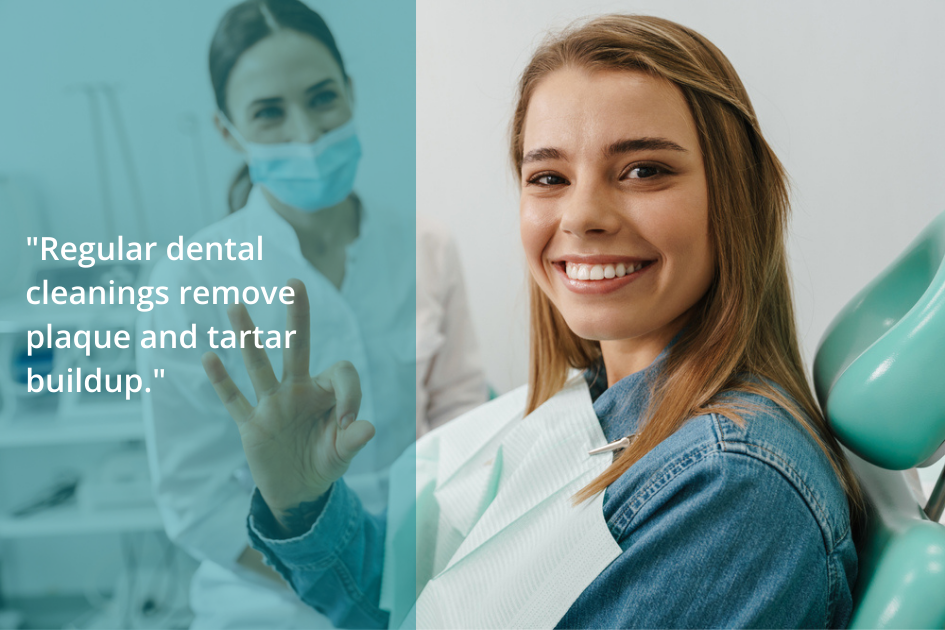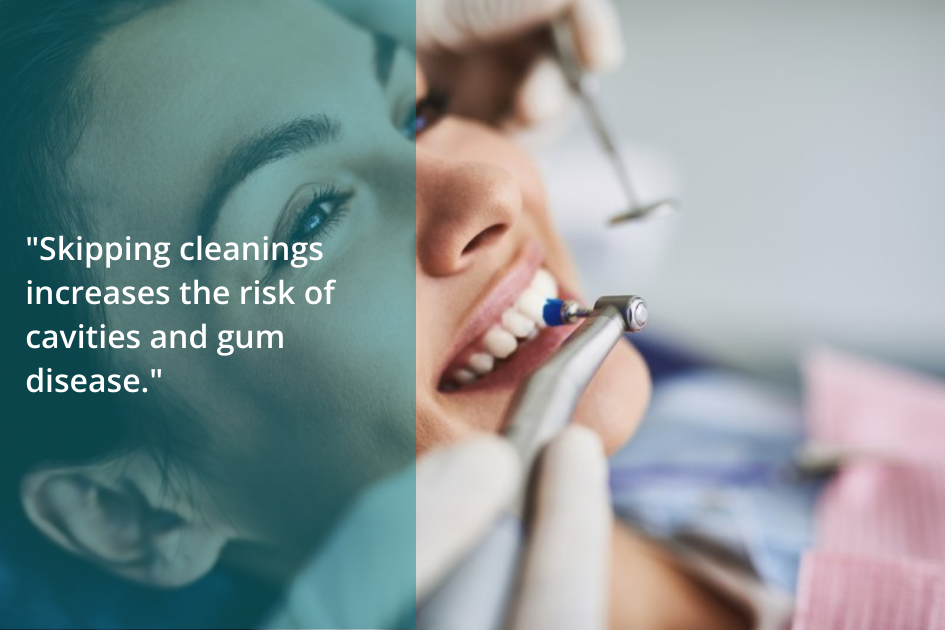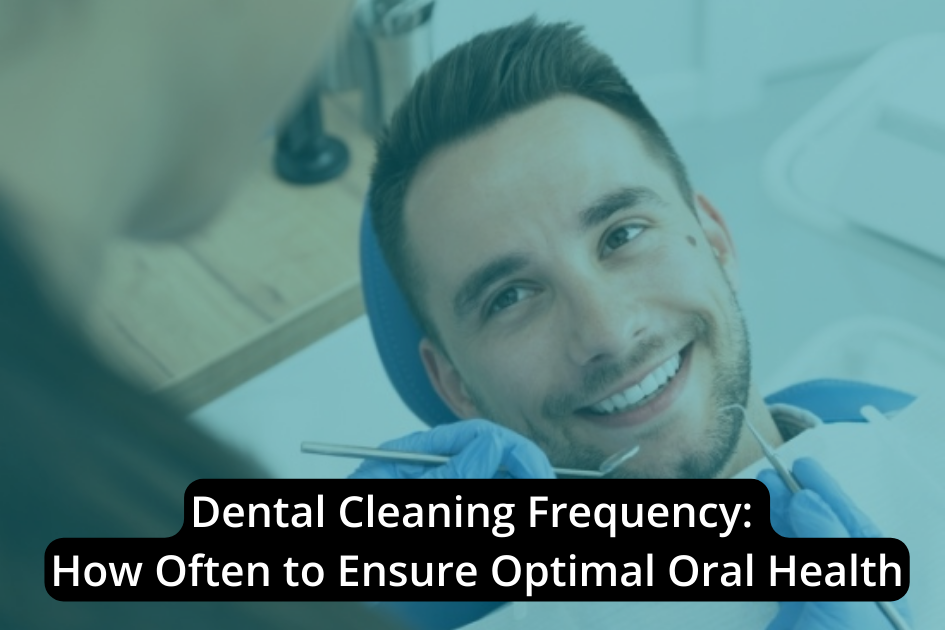When it comes to maintaining our pearly whites, there’s more to think about than just brushing and flossing. We often hear that a dental cleaning every six months is the best standard, but is that really the most suitable advice for everyone? Our individual habits, lifestyle choices, and genetic predispositions play significant roles in determining how often we should see our dentist. By exploring personalized dental care, we can uncover the most appropriate frequency for maintaining our oral health and preventing issues before they arise. Let’s reflect on what factors come into play and how we can better tailor our dental routines.
Importance of Dental Cleanings
Regular dental cleanings are essential for maintaining healthy teeth and gums, as they effectively remove plaque and tartar buildup.
While brushing and flossing at home are important, they can’t always reach every nook and cranny. That’s why routine cleanings by a professional dental team play a significant role in our oral health care.
By removing plaque and tartar, we can prevent tooth decay and gum disease, ensuring our teeth stay strong and our gums healthy.
Regular cleanings also allow dental professionals to spot early signs of potential issues, like cavities or gum disease, before they become serious problems.
Together, brushing, flossing, and routine cleanings create a holistic approach to maintaining excellent oral health.
Recommended Cleaning Frequency
The traditional advice of biannual dental cleanings is evolving toward a more personalized approach based on individual risk factors. We acknowledge that the recommended frequency of dental cleanings isn’t one-size-fits-all.
Factors like lifestyle choices, oral hygiene habits, and fluoride exposure play significant roles. For some, annual cleanings may suffice, while others might need more frequent visits to maintain excellent oral health.
Consistency in oral care and tailored recommendations from our dentist ensure that our approach is customized to our needs. By considering these individual risk factors and lifestyle choices, we achieve a balance that supports our overall well-being.
This personalized approach helps us maintain the best possible dental health.
Factors Affecting Frequency
While grasping the recommended cleaning frequency is important, it’s equally essential to contemplate the factors that can influence how often we should visit our dentist. Risk factors like smoking habits, genetic predisposition, and poor oral hygiene can necessitate more frequent dental cleanings.
Individual oral health needs vary, and tailored cleaning schedules might be required for those with a history of gum disease or other dental issues. Factors such as diet and sugar consumption, fluoride exposure, and overall dental health also play a significant role.
Benefits of Regular Cleanings

Regular dental cleanings play a significant role in preventing cavities and gum disease by eliminating plaque and tartar buildup. These cleanings are essential for maintaining our oral health, as they help detect early signs of issues, allowing for timely treatment.
By removing harmful buildup, we can improve our oral hygiene, freshen our breath, and keep our smiles looking their best. Consistent dental cleanings also lead to cost savings by preventing the need for more extensive procedures down the line.
For those with specific risk factors like a history of gum disease or poor oral hygiene, more frequent cleanings may be recommended. Regular visits ensure we stay ahead of potential problems and maintain our oral health at its best.
Risks of Skipping Cleanings
Skipping dental cleanings often leads to an increased risk of cavities and gum infections. When we skip cleanings, plaque buildup and tartar can wreak havoc on our oral health. Without preventive care, we face higher risks of:
1.Cavities:
Plaque buildup leads to tooth decay, causing painful cavities that require fillings or more intensive treatments.
2.Gum Disease:
Tartar irritates gums, potentially leading to gum disease, which can result in tooth loss if untreated.
3.Higher Costs:
Neglecting regular dental cleanings can lead to more extensive and costly treatments down the road.
What to Expect During Cleanings
During a dental cleaning, we can expect the dental hygienist to meticulously remove plaque and tartar buildup from our teeth to prevent decay and gum disease. The process typically involves scaling, where they use special tools to remove hardened tartar.
After scaling, our teeth are polished to remove surface stains and smooth out the enamel. To further protect our teeth, a fluoride treatment might be applied, which strengthens the enamel and helps prevent cavities.
Regular cleanings are essential preventive care, helping to detect early signs of oral health issues. By catching problems early, we can avoid more extensive procedures down the line. Typically, these cleanings last about 30-60 minutes and are recommended every six months for optimal oral health.
Maintaining Oral Health Between Visits
To maintain our oral health between dental visits, we should brush our teeth twice a day with fluoride toothpaste and floss daily. These simple practices are essential for good dental hygiene and help us avoid gum disease.
Additionally, we can enhance our oral care routine by:
- Using mouthwash: This helps combat bad bacteria and keeps our breath fresh.
- Eating a healthy diet: Limiting sugars and acidic foods supports our teeth and gums.
- Avoiding tobacco products: This preserves proper dental health and minimizes oral health risks.
Routine dental cleanings are vital, but maintaining good habits at home ensures our teeth and gums remain healthy. Let’s prioritize effective brushing and flossing to keep our smiles bright and strong.
Scheduling Your Next Appointment

Now that we’ve covered maintaining oral health between visits, let’s talk about the importance of scheduling your next dental appointment.
Scheduling regular cleanings is key to preventive care. Dentists typically recommend appointments every six months, but this can vary based on individual needs and risk factors. For some, an annual cleaning may suffice, while others with higher risk factors might need more frequent visits. Personalized schedules help us address specific oral health concerns before they require invasive procedures.
Regular check-ups help us maintain excellent oral health and catch issues early. So, let’s prioritize our dental health by booking that next appointment and enjoying the benefits of a healthy, bright smile.
Conclusion
Remember that dental cleanings are pivotal for maintaining our oral health. By working closely with our dentists to establish the right cleaning frequency, we can forestall problems before they begin.
Wouldn’t we rather spend a small amount of time now than deal with larger issues in the future? Regular cleanings, in conjunction with good habits at home, ensure our smiles remain bright and healthy.
So, when’s your next appointment? Don’t delay your dental health – book your cleaning appointment at Great Oaks Dentistry in New Braunfels, TX, today!

